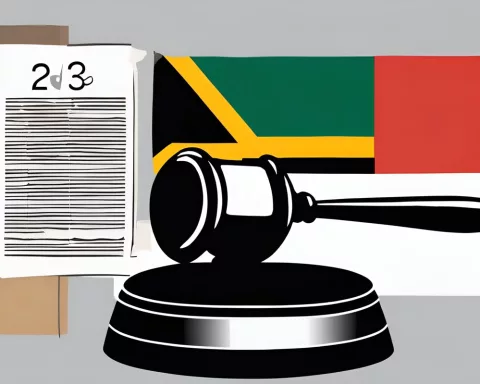The official’s arrest highlights the need for enhanced transparency and accountability in public service, and the fight against corruption requires a collaborative approach between law enforcement agencies and public participation. A corrupt official from the Home Affairs department in Upington was arrested in January 2024 due to alleged corruption. The South African Police Service (SAPS) Provincial Anti-Corruption Investigating Unit (ACIU) conducted a thorough investigation, revealing a scheme of illegal identity document processing for foreigners without proper documentation.
Unearthing Corruption: The Exposure of Fraud in Upington’s Home Affairs Department. In January 2024, an official from the Home Affairs department was apprehended due to alleged corruption. The root of this incident can be traced back to a thorough investigation conducted by the South African Police Service (SAPS) Provincial Anti-Corruption Investigating Unit (ACIU). Following her arrest, the official was to face corruption charges. This case highlights the urgent need for enhanced transparency and accountability across all aspects of public service.
One of the most formidable challenges that public administration often faces is the menace of corruption, which threatens to undermine the system’s integrity. Unfortunately, this was the scenario in Upington when an official from the Home Affairs department was apprehended due to alleged corruption. This incident, which occurred in the early days of January 2024, unveiled a purported scheme of illegal processing of identity papers for foreigners without proper documentation.
The Investigation
The root of this incident can be traced back to a thorough investigation conducted by the South African Police Service (SAPS) Provincial Anti-Corruption Investigating Unit (ACIU). The ACIU, acting on received intelligence, began looking into the accusations against the aforementioned official from Home Affairs. This female officer, aged 37, was suspected of facilitating the illegal processing of identity documents, paving the way for a clandestine portal for undocumented foreigners seeking to establish a presence in Upington.
A pivotal Wednesday marked the beginning of the ACIU’s operations. They embarked on a meticulous operation based on the information they had received. Their efforts paid off when they caught the official red-handed, carrying out the illegal acts in her office. This calculated operation successfully led to her apprehension, revealing the corruption that was festering in this segment of public administration.
The Aftermath
Following her arrest, the official was to face corruption charges. Her impending court proceedings would be held at the Upington Magistrates’ Court. If the allegations levelled against her were substantiated, it would discredit the department she had been serving in, tarnishing their reputation.
In light of this incident, the District Commissioner for ZF Mgcawu, Maj Gen Thabo Mphuthi, praised the SAPS members for their commendable work. He expressed satisfaction over the successful arrest and emphasised the necessity of unearthing all kinds of corruption. In his public statement, he assured the public that every effort would be made to root out corruption.
Lessons Learned
The Upington case stands as a stark reminder of the ongoing battle against corruption within public services. It also showcases the unwavering commitment and dedication of units such as the ACIU, which work tirelessly to uphold justice. These officials, who serve as guardians of public integrity, play a critical role in combating corruption, ensuring those who try to exploit the system for personal gains face justice.
Nevertheless, the fight against corruption doesn’t rest solely on the shoulders of law enforcement agencies. It requires a collaborative approach, wherein public participation is equally significant. The vigilance and willingness of citizens to report suspected illicit activities serve as powerful tools in this battle.
Moreover, this case also highlights the urgent need for enhanced transparency and accountability across all aspects of public service. By cultivating a culture of integrity and strict rule observance, our systems can be better fortified against those attempting to undermine them.
The lessons from the Upington case are unequivocal: corruption can be deeply ingrained within the structures of public service, but with a vigilant populace and dedicated law enforcement, it can be unveiled, confronted and, ultimately, eliminated.
1. What happened in Upington’s Home Affairs department in January 2024?
An official from the Home Affairs department in Upington was arrested due to alleged corruption in January 2024.
2. Who conducted the investigation that led to the official’s arrest?
The South African Police Service (SAPS) Provincial Anti-Corruption Investigating Unit (ACIU) conducted a thorough investigation that led to the official’s arrest.
3. What was the official suspected of doing?
The female officer was suspected of facilitating the illegal processing of identity documents for foreigners without proper documentation.
4. What will happen to the official following her arrest?
Following her arrest, the official was to face corruption charges at the Upington Magistrates’ Court.
5. What is the District Commissioner’s response to the incident?
District Commissioner for ZF Mgcawu, Maj Gen Thabo Mphuthi, praised the SAPS members for their commendable work and emphasised the necessity of unearthing all kinds of corruption.
6. What does the Upington case highlight the need for?
The Upington case highlights the urgent need for enhanced transparency and accountability across all aspects of public service. It also showcases the importance of public participation in the fight against corruption.












